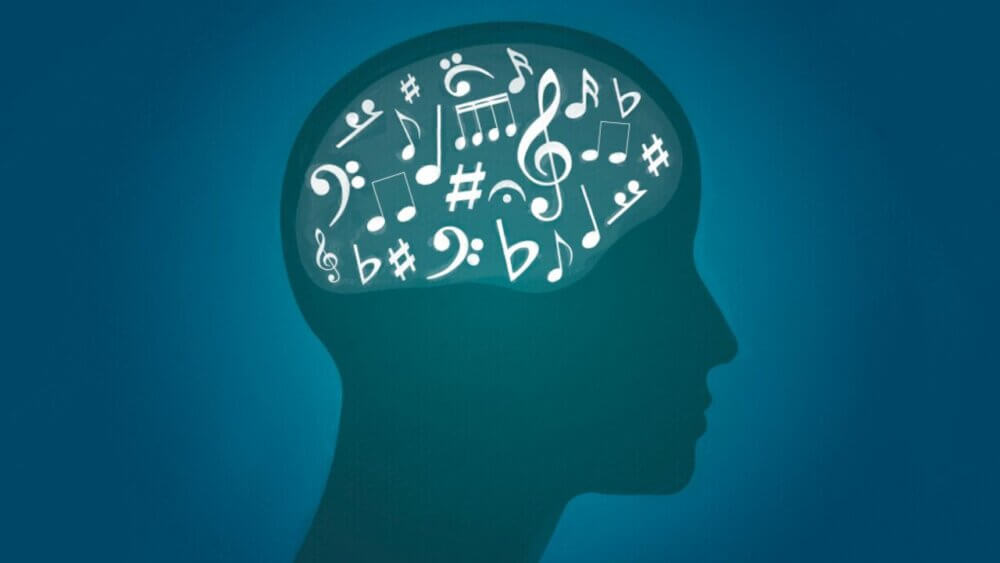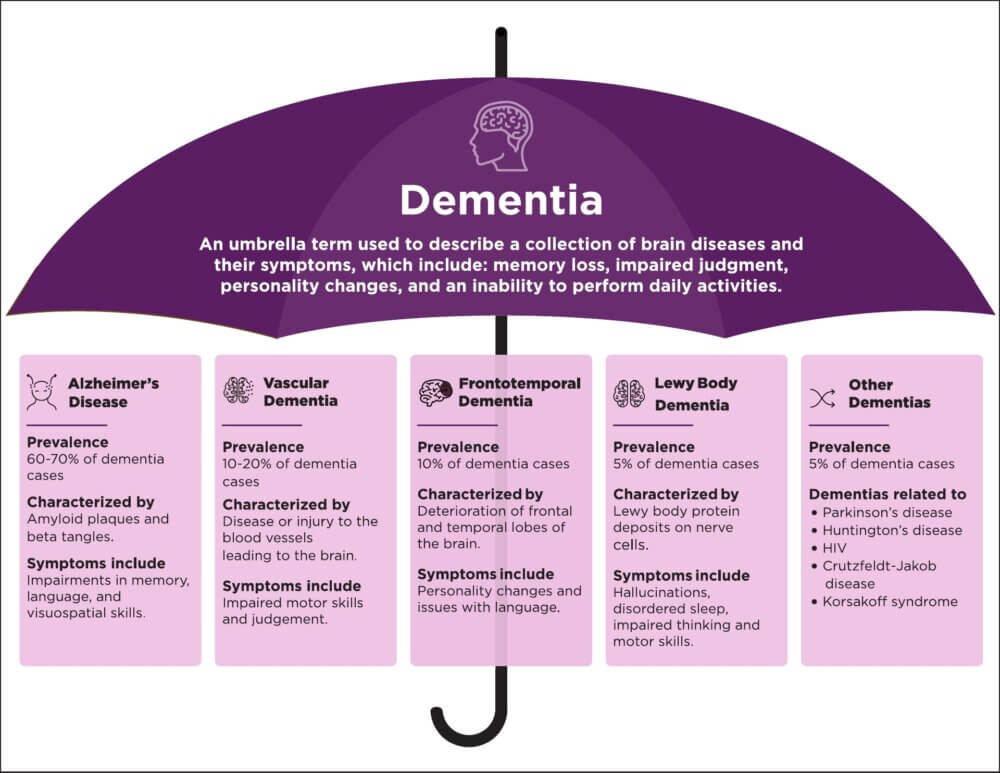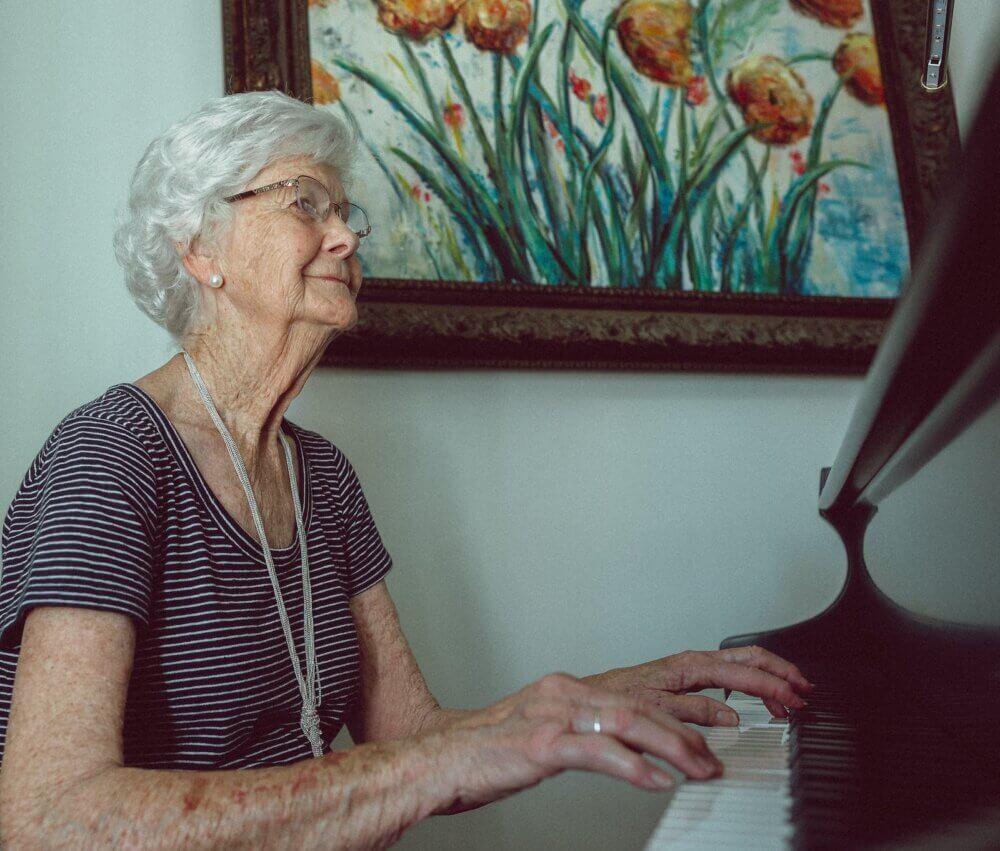Dementia and The Power of Music
Dementia can feel overwhelming, but with the right support and tools it can get a little easier. Music can greatly impact those with Dementia, here's how it could help you.

For you, or someone you love to receive a diagnosis of dementia can be daunting and overwhelming. For some, it can be scary. You may know a little of dementia and focus on those details. You may not have any experience with dementia and feel lost and clueless. Some find themselves delving into the wide range of research and online advice of how to support a dementia diagnosis. No matter what you do, how you respond or how you feel about this diagnosis there is one very important thing you should never forget- you are not alone.
Research shows that there are more than 850,000 people in the UK who have dementia. It is estimated that by 2025 the number of people living with Dementia will be more than 1 million. This, in part, is simply where people are living longer. It is important to note that Dementia is an overall term, it is not a single disease. It can be likened to using the term ‘heart disease’. Dementia is caused by diseases that damage the brain. There are many types of Dementia that fall under the Dementia Umbrella.

Dementia causes changes in memory, thinking, cognitive skills, personality, and behaviour. These changes can subsequently impact their daily life, routine, behaviours, emotions, and relationships. However, these can vary depending on the person and the type of Dementia they have been diagnosed with. It is progressive which means that in time symptoms can get worse, or more symptoms can arise.
One of the key things to remember with a dementia diagnosis is that every person with a diagnosis experiences dementia differently. Every person in this world has a unique fingerprint, Dementia is no different. It is why it can feel difficult to navigate and support at times. There is so much information available online and in books but even these can only discuss about the general and not the specific.
On the many websites you can look at, they will discuss the signs and symptoms of Dementia. It is important, again, to remember here that everyone is different and may not show all of what is listed. The most common include:
- Memory loss (which is typically the first symptom of Dementia).
- Language (which may include using words incorrectly or having trouble speaking).
- A change or lack of understanding.
- Change or lack of judgement.
- Change in mood, behaviour, or personality, including a loss of empathy.
- Problems managing behaviours or emotions.
- Changes in ability of movement.
- Difficulties in completing daily activities (especially if these have been done the same way for a long time, and there is a change in ability).
- They may see or hear things that others do not (not hallucinations).
- A change or loss of interest in usual activities.
- Finding social situations difficult, or a loss of interest in socialising and relationships.
There are also several types of dementia. The most common are Alzheimer’s Disease, Vascular Dementia, Dementia with Lewy Bodies, Frontotemporal Dementia and Mixed Dementia. There are, of course, many other types of Dementia. According to Dementia UK there are over 200 subtypes of dementia. This can make it even more confusing. However, after a diagnosis of Dementia you will typically be told the type of Dementia you are living with. From there, you can look at specific research and information that will support you. Below are some links that are full of information and advice, including specifics information for most types.
https://www.nhs.uk/conditions/dementia/about/
https://www.alzheimers.org.uk/about-dementia
https://www.dementiauk.org/about-dementia/
https://www.alz.org/alzheimers-dementia/what-is-dementia
However, having so much information available can also become overwhelming. You can sometimes get lost in the sea of information available, where you can access lots but still feel clueless. At these moments it is important to remember to take a step at a time. The best thing if you are concerned is to contact your GP. Where you may already have a diagnosis then, you will hopefully already be on a path to get support. This could be with assessments and potentially medication. However, there are lots of other ways you can also support a loved one with a Dementia Diagnosis.
Dementia and Music
A powerful tool in supporting someone with Dementia is music. While it may seem something trivial, music can have amazing effects on those living with Dementia. For some living with Dementia, they may not be able to recall what they ate that day however if you play a song, they know they will remember and sing every single word perfectly. This is typically where music can hold an emotional connection to a memory which supports the song (and lyrics) being remembered. These moments are always a joy where you will often find a huge smile on their faces as they recall the song, memory, or emotion.

According to research, music can help reduce heart rate, blood pressure, relieve muscle tension, support pain management, as well as trigger endorphins which may ease depression, anxiety, agitation and reduce stress. Music can also provide a connection and shared experience between you and the person with Dementia. Music can also serve as a distraction from negative emotions. This can at times then lead to the person living with Dementia getting support that they may otherwise refuse. Listening to or engaging in music, by singing, dancing, or playing instruments, can help people with dementia develop and maintain relationships with others and improve their wellbeing. It can help people to express themselves, help them to tell their story and share a piece of themselves with others, encourage social interaction, encourage physical exercise or movement through dance.
There are many ways in which you can support someone with music. You may find that if you have music on in the background, someone may be calmer and more ready to complete their personal care. Having music on in the evening may be a way of supporting lower moods, or higher levels of confusion or anxiety. There are many Dementia music groups within Northampton. One of these being ‘Singing for the Brain’. There are also Dementia Choirs, Dance Groups, Tea Dance Groups and much more that you could visit. Below is a link for Singing with the Brain in Northampton:
There is also a charity called ‘Playlist For Life’, who harness the powerful effects of personal music. They do this by helping to build a music playlist that will ignite special memories, reduce stress, improve moods and support with daily routines. They provide conversation starters, ideas, and themes for songs. They provide a wide range of support, including information about the impact of Music on those living with Dementia, training courses for families and professionals, webinars and much more. Please find the link below

Another noteworthy, and one of the most important tools you can use to support a loved one living with Dementia is understanding. To be understood is something that many living with Dementia wish for. Dementia can be confusing and frustrating. Many can struggle with seeing their loved ones change with Dementia. For some, changes caused by Dementia can sometimes lead to feeling like a completely different person. This can be difficult to see and experience. However, understanding your loved one’s new reality is one of the most significant things you can do to support them. This may be accepting how their personality has changed, or changes in behaviours, moods, or ability to complete tasks and activities. This may be ‘going along’ with what they are saying, even if it confuses you. It may be avoiding arguing that what they think may be correct, and instead distracting them with a change of subject. This acceptance and understanding of a loved one’s new reality may also reduce negative emotions and anxiety, where some may become anxious and upset where they are otherwise not understood.
At Home Instead Northampton, all our Care Professionals partake in specialist Dementia training which helps them to support clients with a dementia diagnosis. However, while supporting our clients is our main focus, we are also here to support the families and loved ones of our clients.
At Home Instead Northampton, we love to care and support all our clients. We endeavour to understand them and what their life and reality looks like. We do this through our initial consultation and assessment, where we meet our clients and loved ones to find out all about them and their life. For our clients with Dementia, we like to know what their reality looks like. We discuss how Dementia effects them, if they have any struggles, if and how much has changes since their diagnosis. This enables us to create a personal Care Plan, where each client’s Care Team can look to learn about their clients. From here, Care Professionals will build relationships with their clients to continue supporting them. As our Clients Dementia may progress, our team will update the Care Plan and support needed. We will adjust any supported needed as time goes on, ensuring our clients are fully supported in every way that they need.
